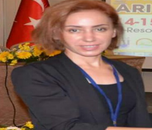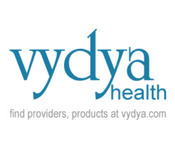The state of being compulsively committed to a habit or practice that is psychologically or physically harms the body and mind. It is also defined as inability to stop a substance abuse or engaging in a behavior. They are two different types of additions are mentioned Behavioural addiction and Physical addiction.
-
Food Addiction
-
Cell Phone Addiction
COVID-19 and addiction are the two pandemics which are at impact causing in major public health threat. While every effort must be taken to make the public aware of detrimental effects of SUD on COVID-19 prognosis. People with SUD area unit at larger risk of worse COVID-19 outcome. There’s surge of habit forming behaviors as well as activity addiction during this amount. Withdrawal emergencies and death are being progressively reportable.
-
Psychosocial Impact
-
Addiction Psychiatry
Risk and protecting factors will have an effect on children at different stages of their lives. At every stage, risks occur that may be modified through interference intervention. Childhood risks, like aggressive behavior, is modified or prevented by family health, school, and community interventions that specialize in serving to infants and children develop applicable, positive behaviors. If not self-addressed, negative behaviors will cause additional risks, like tutorial failure and social difficulties that place children at any risk for later habit.
Models of addiction deliver the message that understanding the biological basis of addiction, in conjunction with the broader social and psychological aspects of addictive disorders behaviour will cause flourishing prevention and treatment responses.
Addiction is an informal behaviour and state of the body and mind which can come in many ways. Behavioural Addiction, Substance Addiction, Impulse Addiction are the major addictions which are not in control. These may leads to Physical, Psychological addiction and Personal Complications
Behavioral addiction is also a sort of addiction that involves a compulsion to move in a very gratifying non substance connected behavior generally called a natural reward despite any negative consequences to the person's physical, mental, social or money wellbeing. Addiction canonically refers to substance abuse but, the term has been swollen to incorporate behaviors which will result in an award. A cistron transcription issue referred to as referred to as been known as a necessary common measure concerned in each behavioural and drug addictions, that are related to a similar set of neural variations within the reward system.
-
Alcoholism
-
Substance Addiction
-
Mental Disorders
Several therapies exists for treating substance use disorder. Even for a severe disorder, treatment can help. Therapy includes inpatient therapy and outpatient therapy. Inpatient therapy includes drug-free environments, hospitalization. Self-help groups such as Alcoholics and Narcotics Anonymous can help on the path to recovery.
-
Medications
-
Self-control
-
Heart Diseases
Rehabilitation is care that helps to get back or improve the abilities that you need for daily life. These abilities may be physical, mental or cognitive. Rehabilitation is physiatry where the physical impairments or disabilities can be restored to improve the quality of life to people.
-
Preventative Rehabilitation
-
Restorative Rehabilitation
-
Supportive Rehabilitation
-
Palliative Rehabilitation
Group therapy helps people to develop their communication skills and socialization skills, and it helps to permit clients to be learn a way to categorical their issues and settle for criticism from others. Group therapy allows every individual to develop their self-awareness by listening to others with similar issues.
-
Cognitive behavioral groups
-
Support groups
-
Interpersonal process groups
Addiction psychiatry is a medical discipline of psychiatry that focuses on evaluating, diagnosing, and treating persons who have one or more addiction-related illnesses. Disorders involving legal and illicit drugs, gaming, relationships, food, and other addictive behaviors are examples of this.
-
Heroin addiction
-
Alcohol addiction
-
Opioid addiction
-
Drug addiction
Organic psychiatry, often known as neuropsychiatry, is a discipline of medicine that investigates psychiatry's relationship to neurology in order to better explain and attribute behaviors to the combination of neurobiological and social psychological components.
-
Seizures
-
Attention deficit disorders
-
Cognitive deficit disorders
-
Uncontrolled anger
-
Migraine headaches
Substance abuse and dependence are prevalent disorders involving the excessive use of alcohol and or drugs. Addiction is a chronic, recurrent disorder that takes years to develop. Drug abuse, also known as substance abuse, is a disorder characterised by the excessive use of habit-forming drugs or the misuse of over-the-counter medications, and the illegal use of drugs, which all cause severe addiction and dependence, as well as a slew of negative consequences. Drug addiction is a chronic illness to relapse rates similar to hypertension, diabetes, and asthma.
-
Substance abuse
-
Substance dependence
-
Chemical dependence
There is really no such thing as physical wellbeing without mental health. Individuals, families, and communities all benefit from better mental health. People with good mental health may experience success, build perseverance in the face of adversity, increase productivity, and sustain social cohesiveness via meaningful relationships.
Depression, anxiety disorders, and schizophrenia, as well as substance abuse disorders and problem gambling, are all examples. Distress and or impairment of functioning are classic symptoms of addiction and mental illness. The signs and symptoms range from moderate to severe. Most people recover with the right therapy and support.
-
Mental illness
-
Attention-Deficit Hyperactivity Disorder
-
Antisocial Personality Disorder
-
Emotional Disorder
Stress management comprises a wide variety of treatments and psychotherapies aiming at decreasing a person's stress level, particularly chronic stress, with goal of improving occupational performance. We can cope up with stress by practising these techniques
-
Re-balance Work and Home
-
Build in Regular Exercise
-
Carve out Hobby Time
-
Practice Meditation, Stress Reduction or Yoga
-
Sleep Enough
Though anxiety and depression are two distinct disorders, they usually coexist. They are also given the same treatment. It's understandable to feel depressed or even have the blues from time to time. And everyone gets nervous at times - it's a natural reaction to stressful situations. However, chronic or severe depression and anxiousness might indicate the presence of a mental health problem. Social anxiety and clinical depression affect a great amount of people.
-
Anxiety
-
Depression
-
Panic disorder
Alcohol addiction, commonly known as alcoholism, develops when a person has a strong need to use alcohol despite its negative effects. Addiction differs from dependency in that it is a psychological process instead of a physiological one. They can appear individually, although they generally do so at the same moment. Experts have attempted to identify variables that may predispose someone to alcohol addiction, such as sex, ethnicity, or socioeconomic status. However, there isn't a single reason for this. The condition can be caused by a combination of psychological, genetic, and behavioural causes.
-
Heredity
-
Culture
-
Work influence
-
Aggression
Behavioral therapies for children and adolescents vary significantly, but they all focus on how a young person's environment may unknowingly or unintentionally reward some troubling attitudes or undesirable activities. Adolescents and children can profit from behaviour treatments for a range of psychological issues. Behavioral therapists encourage children and adolescents to try different behaviours and encourage undesirable habits to "extinguish" regardless of the fact that behavioural treatments differ greatly from disease to disorder.
-
System desensitization
-
Cognitive behavioral play therapy
-
Cognitive behavioral therapy
-
Aversion therapy
Addiction has a variety of cognitive effects. Stimulants, Nicotine, Opioids, Alcohol, and Sedatives all include chemical substances that reach the brain and circulation when used. Whenever a chemical enters the brain, it can induce people to lose control of their impulses or establish a strong desire for a harmful drug. The central nervous system and parasympathetic functions critical for survival, such as blood pressure, breathing, heart rate, and body temperature, may be slowed or sped up by mind-altering medications. Drug abuse also alters the levels of some of the brain's chemical messengers, or neurotransmitters.
-
Brain craves
-
Stimulants
-
Impulses
Addiction cannot be cured, but it can be managed like some other chronic diseases and disorders to reduce the severity of the disease's spread. There have been few advancements in addiction treatment.
-
Addiction Recovery Apps
-
Evidence-Based Treatment
-
Intensive One-on-One Psychotherapy
-
Using Virtual Reality to Overcome Addiction
-
Individualized Care
Substance abuse therapy is a sort of intervention activity designed to change the course of a disease process used to assist people recover from alcohol or other drug misuse by abstaining entirely or reducing their usage of the substance. Brief alcohol intervention, or BAI, is the most extensively utilised kind of therapy for alcohol misuse, which is the most common form of substance abuse among seniors.
-
Compulsion
-
Addictive behaviors
-
Consequences
International: United Nations Office on Drugs and Crime, World Health Organization
United States: Alcoholics Anonymous, Cenikor Foundation, Greenway Recovery Center, Hope Haven, Mothers Against Drunk Driving, National Institute on Drug Abuse, SMART Recovery, NY Problem Gambling - Free Resources For Gambling Addiction, RehabForTeens.co Teen Addiction Help, TeenRehab.org - Free information about teen substance use, American Drug Rehabs - Resource for Local Drug Rehabs, Drug Addiction Now - Drug and Alcohol Addiction News Resource, FindRecovery, Find Addiction Rehabs, Safe Landing Recovery
Europe: European Association of Libraries and Information Services on Addictions, European Monitoring Centre for drugs and drug Addiction, European Association for Consultation-Liaison Psychiatry and Psychosomatics, European Brain and Behaviour Society, Pompidou Group-Council of Europe, Clinic for Health and Medical Care, International Society of Substance use Professionals
Middle East: National Rehabilitation Centre Abu Dhabi (NRC), Abu Dhabi Rehabilitation Centre, Venecia Home Nursing and Rehabilitation
Asia Pacific: Asia Pacific Association for Addiction Professionals, Asia Pacific Society for Alcohol & Addiction Research, American Society of Addiction Medicine | Global Events | Asia Pacific, Union of Pan Asian Communities, Home - Union of Pan Asian Communities Addiction & Mental Health Resources for the Asian American and Pacific Islander Communities.











